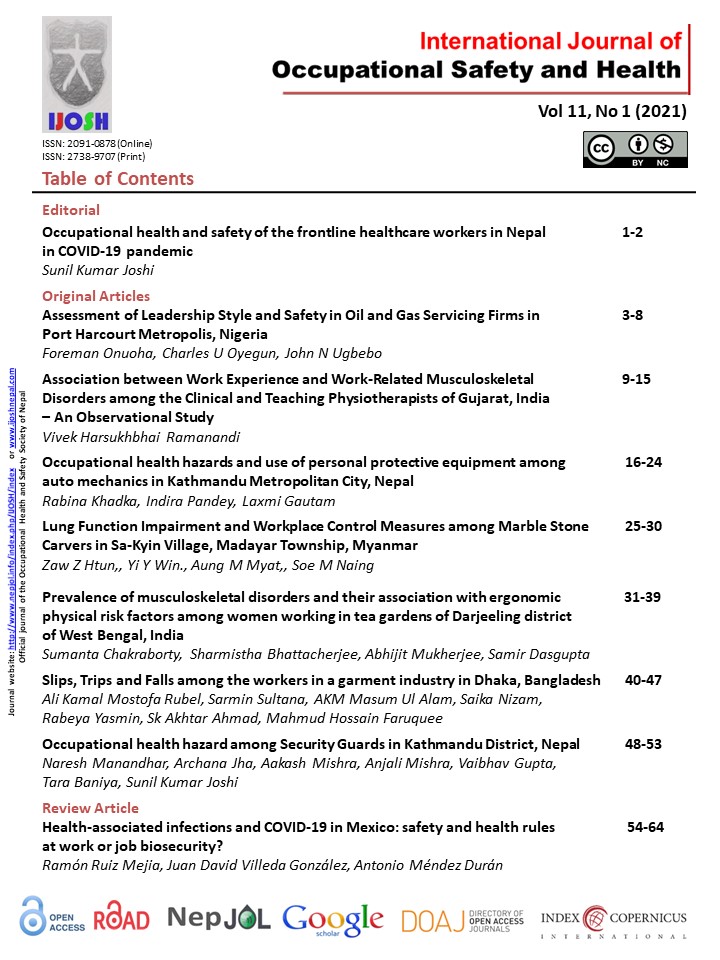Prevalence of musculoskeletal disorders and their association with ergonomic physical risk factors among women working in tea gardens of Darjeeling district of West Bengal, India
DOI:
https://doi.org/10.3126/ijosh.v11i1.35179Keywords:
Female workers, REBA employee assessment worksheet, Standard NORDIC Musculoskeletal Questionnaire, Work related musculoskeletal disordersAbstract
Introduction: Work related musculoskeletal disorders (WRMSDs) is common among tea-plucking folks and may be attributed to the long duration of work in same posture, the load they carry while plucking and transporting the leaves to the nearest depot, improper job rotations and the difficult hilly terrains.
Objective: To determine the prevalence and pattern of musculoskeletal disorders among tea garden workers and to ascertain the risk factors for the same.
Methods: A cross-sectional study was conducted among 210 female tea garden workers employed in tea gardens of Darjeeling district using 30 cluster sampling design. Data on musculoskeletal morbidities were collected using Standard Nordic Musculoskeletal Questionnaire and ergonomic risk was assessed by Rapid Entire Body Assessment (REBA) worksheet.
Results: Proportion of musculoskeletal disorders in past 12 months was 92.4% and in past 7 days was 71.4%. Upper extremities were the most commonly affected body part. Higher altitude, age, BMI, more duration in present job, history of work related injuries and increased REBA risk assessment score were found to be significantly associated with musculoskeletal disorders.
Conclusion: Musculoskeletal morbidities among female tea garden workers of Darjeeling were found to be considerably high. Ergonomic mechanised assistance in tea plucking can reduce this proportion of MSD and thus may go a long way in reducing sickness absenteeism and increasing productivity.
Financial support and sponsorship - Nil.
Conflicts of interest - There are no conflicts of interest.
Downloads
Downloads
Published
How to Cite
Issue
Section
License
This license enables reusers to distribute, remix, adapt, and build upon the material in any medium or format for noncommercial purposes only, and only so long as attribution is given to the creator.





